
Ayutthaya: The Ancient Capital of Siam
Ayutthaya, once the thriving capital of the Kingdom of Siam, is a city rich in history and cultural heritage. Founded in 1350, it quickly became one of the world's largest urban areas and a center of trade and diplomacy. Today, it stands as a UNESCO World Heritage Site, drawing visitors from around the globe to explore its ancient ruins and stunning temples. The city's historical park is a must-see, featuring the iconic Wat Mahathat, where the famous Buddha head entwined in tree roots resides. Another highlight is Wat Phra Si Sanphet, known for its impressive row of chedis. Each site tells a story of Ayutthaya's grand past, offering a glimpse into the architectural prowess and spiritual life of its people. Beyond the ruins, modern Ayutthaya offers a charming mix of old and new. Visitors can enjoy a ride on a traditional long-tail boat along the Chao Phraya River or explore the local markets for delicious Thai street food. The city also boasts several museums and cultural centers, where one can learn more about its storied past and vibrant culture.
Local tips in Ayutthaya
- Wear comfortable shoes for exploring the ruins; the historical park is vast and requires a lot of walking.
- Visit early in the morning or late in the afternoon to avoid the heat and crowds.
- Hire a local guide to gain deeper insights into the history and significance of each site.
- Try the local delicacy, Roti Sai Mai, a sweet treat resembling cotton candy wrapped in a crepe.
- Consider renting a bicycle or taking a tuk-tuk to get around the city more easily.
Neighbourhoods in Ayutthaya
Ayutthaya: The Ancient Capital of Siam
Ayutthaya, once the thriving capital of the Kingdom of Siam, is a city rich in history and cultural heritage. Founded in 1350, it quickly became one of the world's largest urban areas and a center of trade and diplomacy. Today, it stands as a UNESCO World Heritage Site, drawing visitors from around the globe to explore its ancient ruins and stunning temples. The city's historical park is a must-see, featuring the iconic Wat Mahathat, where the famous Buddha head entwined in tree roots resides. Another highlight is Wat Phra Si Sanphet, known for its impressive row of chedis. Each site tells a story of Ayutthaya's grand past, offering a glimpse into the architectural prowess and spiritual life of its people. Beyond the ruins, modern Ayutthaya offers a charming mix of old and new. Visitors can enjoy a ride on a traditional long-tail boat along the Chao Phraya River or explore the local markets for delicious Thai street food. The city also boasts several museums and cultural centers, where one can learn more about its storied past and vibrant culture.
When is the best time to go to Ayutthaya?
Iconic landmarks you can’t miss
Wat Yai Chai Mongkhon
Explore the serene beauty and historical significance of Wat Yai Chai Mongkhon, a premier Buddhist temple in Ayutthaya, Thailand.
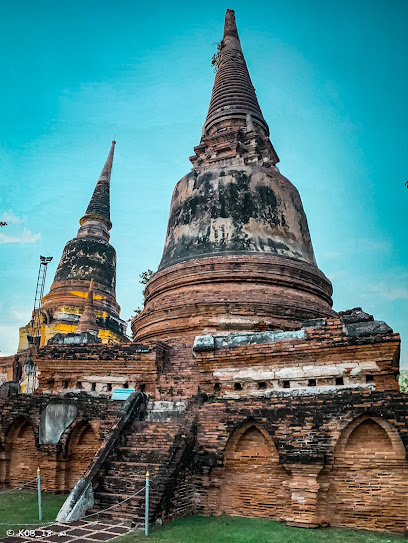
Wat Maha That
Discover the spiritual heart of Ayutthaya at Wat Maha That, a historical landmark where ancient architecture meets tranquil beauty.

Wat Phanan Choeng Worawihan
Explore the spiritual heart of Ayutthaya at Wat Phanan Choeng Worawihan, home to a magnificent Buddha statue and rich cultural heritage.
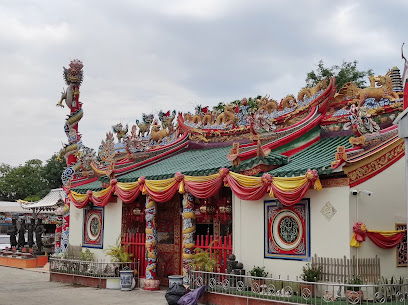
Wat Chaiwatthanaram
Explore the enchanting Wat Chaiwatthanaram, a historic Buddhist temple in Ayutthaya, where ancient history meets stunning architecture.
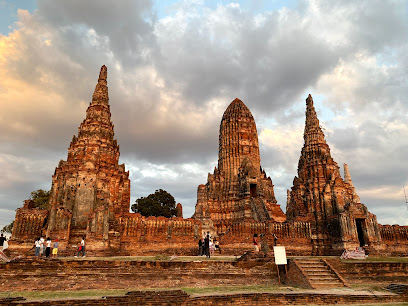
Ayothaya Floating Market
Discover the vibrant Ayothaya Floating Market, where authentic Thai cuisine and local crafts come together amidst the picturesque waterways of Ayutthaya.
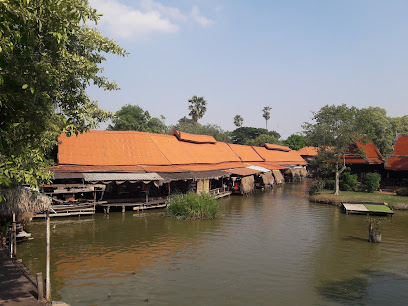
Wat Phra Si Sanphet
Explore the majestic Wat Phra Si Sanphet, a historical landmark in Ayutthaya showcasing breathtaking architecture and rich cultural heritage.

Bang Pa-In Palace
Discover the enchanting beauty and rich history of Bang Pa-In Palace, a royal summer retreat showcasing stunning architecture and serene gardens.
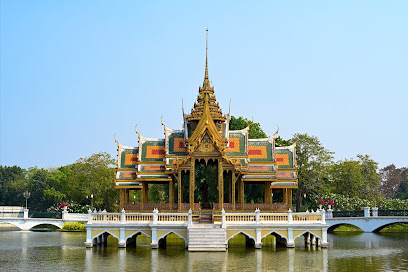
Wat Na Phra Meru Rachikaram
Discover the serene beauty of Wat Na Phra Meru, a historical Buddhist temple in Ayutthaya, showcasing Thailand's rich cultural heritage and stunning architecture.
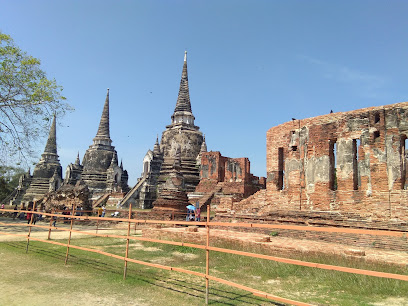
Wat Lokkayasutha
Discover the serene beauty of Wat Lokkayasutha, home to the magnificent reclining Buddha and a key highlight of Ayutthaya's historical landmarks.
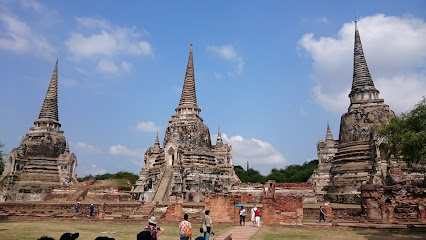
Wihan Phra Mongkhon Bophit
Experience the spiritual essence of Thailand at Wihan Phra Mongkhon Bophit, a breathtaking Buddhist temple brimming with rich culture and serene beauty.
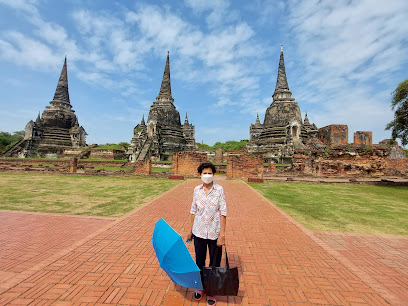
Ayutthaya Historical Park Office
Discover the ancient glory of Ayutthaya Historical Park, a UNESCO World Heritage site filled with stunning temples and rich Thai history.

Ayutthaya Elephant Palace & Royal Kraal
Experience the beauty of Thailand's elephants at Ayutthaya Elephant Palace & Royal Kraal, a sanctuary dedicated to elephant conservation and unforgettable interactions.
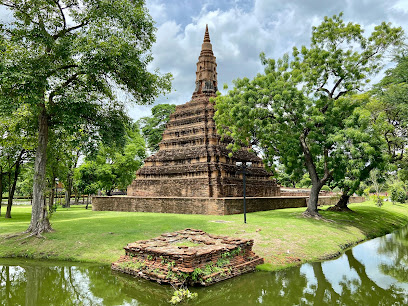
Chao Phrom Market
Explore the colorful and flavorful Chao Phrom Market in Ayutthaya, a vibrant hub of local culture, delicious street food, and unique handcrafted goods.
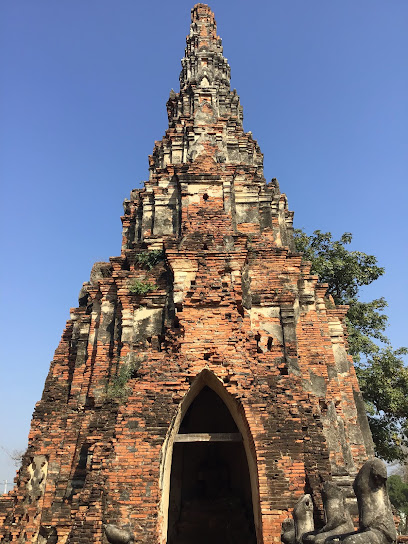
Wat Phutthaisawan
Discover the tranquil beauty and rich history of Wat Phutthaisawan, a stunning Buddhist temple in the heart of Ayutthaya, Thailand.
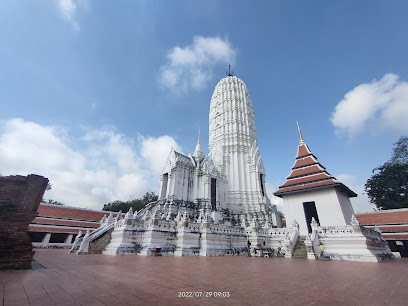
Japanese Village
Discover the captivating history and serene beauty of the Japanese Village, a unique museum in Phra Nakhon Si Ayutthaya showcasing Japanese culture and heritage.
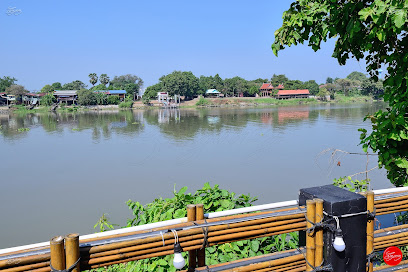
Unmissable attractions to see
Wat Yai Chai Mongkhon
Discover the serene beauty and historical significance of Wat Yai Chai Mongkhon, a must-visit Buddhist temple in Ayutthaya, Thailand.
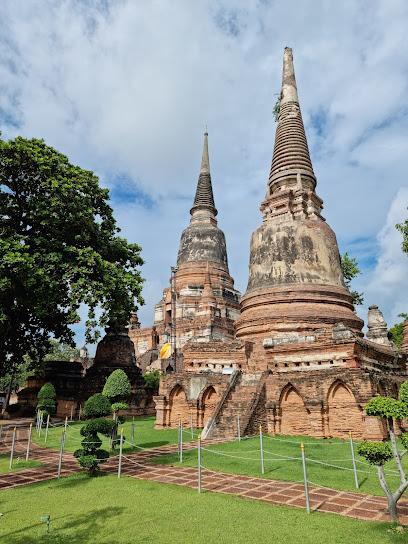
Wat Phanan Choeng Worawihan
Discover the majestic beauty of Wat Phanan Choeng Worawihan, a historical Buddhist temple in Ayutthaya with a stunning seated Buddha statue and serene atmosphere.
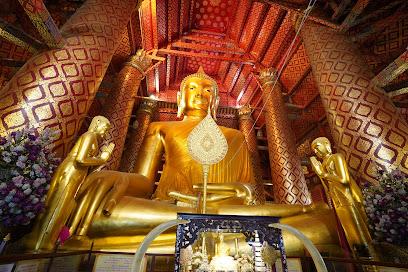
Dream World
Experience the thrill and magic of Dream World, Thailand's top amusement park with rides, attractions, and fun for the whole family.

Wat Phra Si Sanphet
Explore the grandeur of Wat Phra Si Sanphet, a historical gem in Ayutthaya showcasing Thailand's rich cultural and architectural heritage.
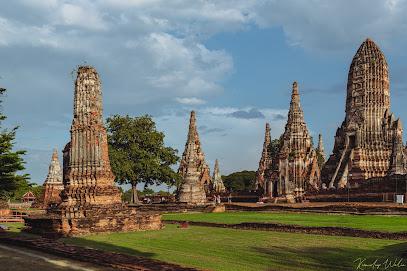
Maharat Buddhist Park, Luang Pu Thuat
Explore the serene Maharat Buddhist Park in Ayutthaya, a tranquil oasis showcasing stunning statues and lush gardens dedicated to Luang Pu Thuat.
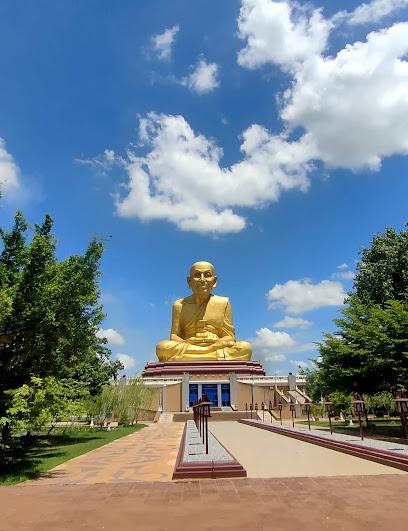
Wat Na Phra Men Rachikaram
Explore the serene beauty of Wat Na Phra Men Rachikaram, a historical Buddhist temple in Ayutthaya, embodying Thailand's rich spiritual heritage.
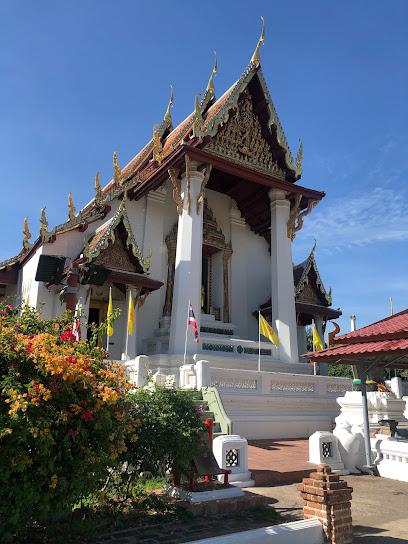
Bang Pa-In Palace
Discover the enchanting Bang Pa-In Palace, a royal summer retreat showcasing exquisite architecture and lush gardens in Thailand's historical heart.
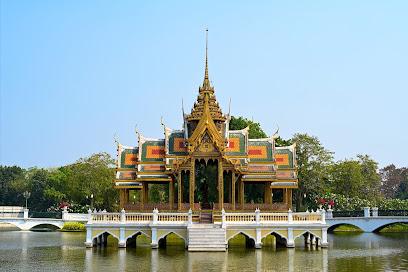
Wihan Phra Mongkhon Bophit
Explore the grandeur of Wihan Phra Mongkhon Bophit, home to Thailand's largest bronze Buddha and a key attraction in Ayutthaya's historical landscape.
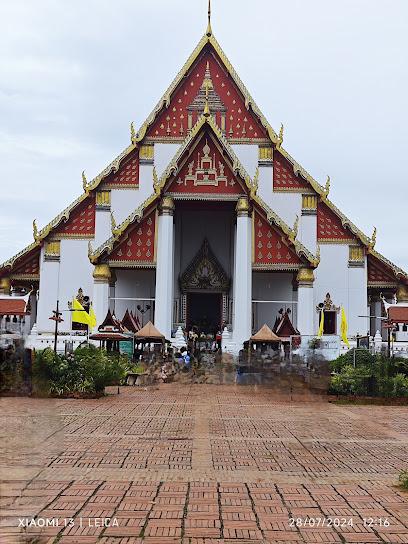
Ayutthaya Elephant Palace & Royal Kraal
Experience the rich heritage of Thailand at the Ayutthaya Elephant Palace & Royal Kraal, where majestic elephants and culture intertwine.
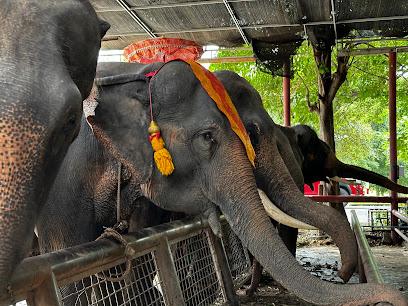
Phra Prang Sam Yot
Explore the enchanting Phra Prang Sam Yot, a historical landmark in Lopburi showcasing stunning architecture and rich cultural heritage.
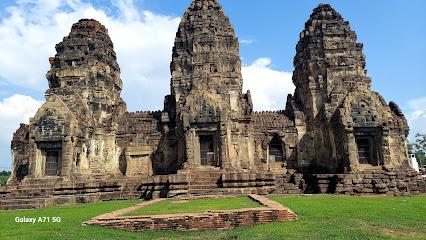
Ayutthaya Historical Park Office
Explore the captivating ruins of Ayutthaya Historical Park, a UNESCO World Heritage Site that offers a glimpse into Thailand's glorious past.
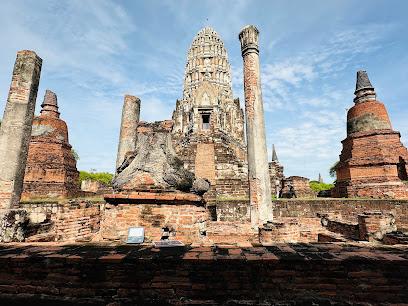
Wat Tha Ka Rong
Explore the enchanting Wat Tha Ka Rong, a tranquil Buddhist temple in Ayutthaya, rich in history and spirituality, perfect for cultural immersion.
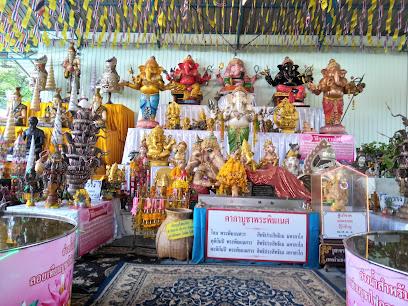
National Science Museum
Explore the National Science Museum in Pathum Thani, a captivating blend of science, technology, and interactive exhibits for all ages.
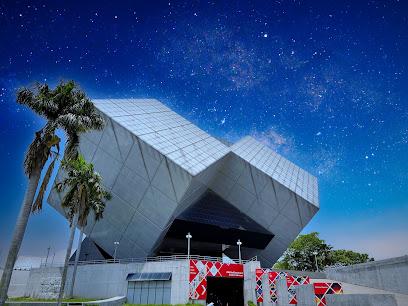
Wat Khun Inthapramun
Experience the serenity of Wat Khun Inthapramun, a stunning Buddhist temple in Ang Thong, home to a magnificent reclining Buddha and rich cultural heritage.
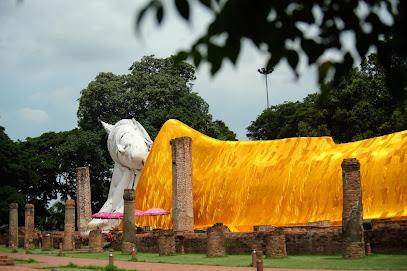
Thammasat Stadium
Discover Thammasat Stadium, a vibrant sports venue in Pathum Thani, Thailand, that showcases local culture and athletic spirit in a modern setting.
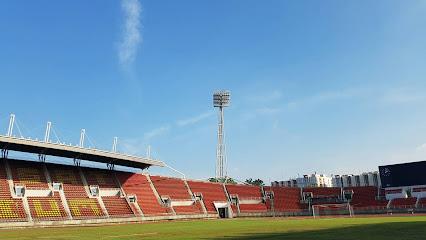
Essential places to dine
Baan Mai Rim Num AYUTTHAYA
Experience authentic Thai flavors at Baan Mai Rim Num in Ayutthaya – a must-visit dining destination for every traveler.
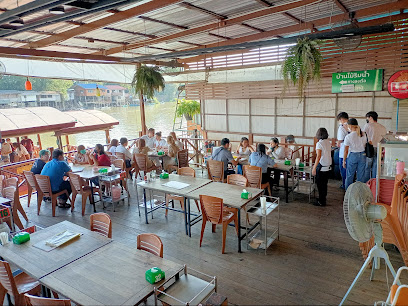
Phak Wan
Experience the vibrant flavors of Thailand at Phak Wan in Ayutthaya - your destination for authentic Thai cuisine.
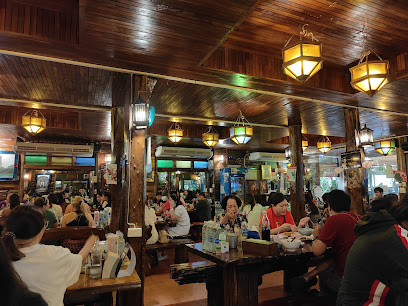
แพอาหารกู๊ดวิว อยุธยา
Experience authentic Thai cuisine at Good View Restaurant while enjoying stunning riverside views in historic Ayutthaya.
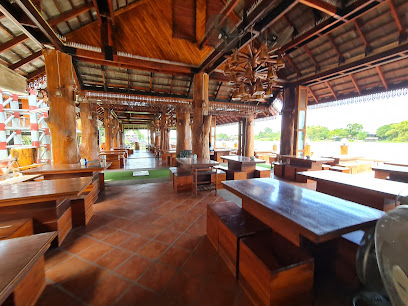
Pae Krung Kao Restaurant
Discover the essence of Thai cuisine at Pae Krung Kao Restaurant in Phra Nakhon Si Ayutthaya—where tradition meets flavor.
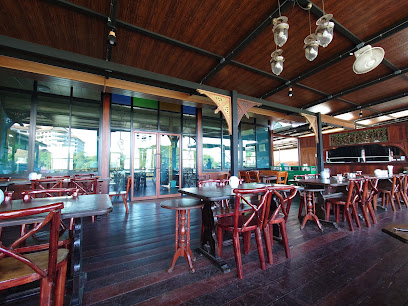
De Riva Ayothaya
Experience authentic Thai flavors and stunning riverside views at De Riva Ayothaya - a culinary gem in historic Ayutthaya.
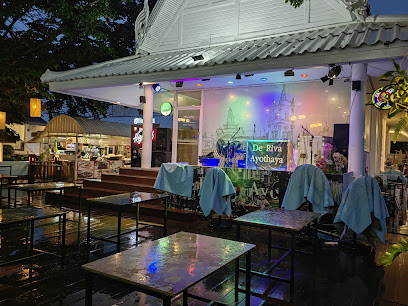
Satang
Experience authentic Thai cuisine at Satang, where every dish tells a story and invites you into the heart of Ayutthaya's culinary heritage.
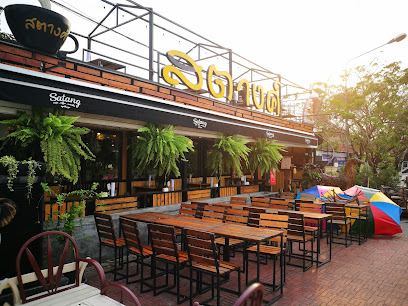
Busaba Ayutthaya Cuisine (คาเฟ่ และอาหารไทย-อยุธยา สไตล์บุษบา)
Discover authentic Thai cuisine at Busaba Ayutthaya Cuisine, where tradition meets modernity in every delicious dish.
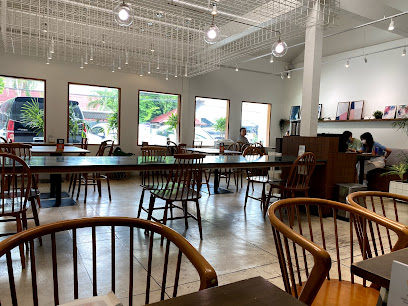
The Wine Ayudhya
Experience authentic Thai flavors at The Wine Ayudhya in Phra Nakhon Si Ayutthaya—a must-visit culinary gem for every traveler.
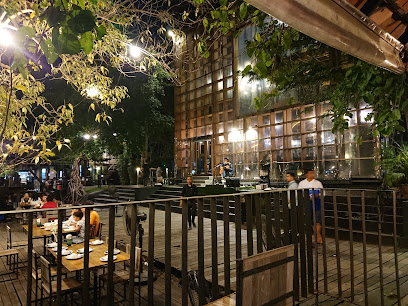
Mong Doo Ruea
Discover authentic Thai flavors at Mong Doo Ruea in Ayutthaya - a culinary treasure for every food lover.
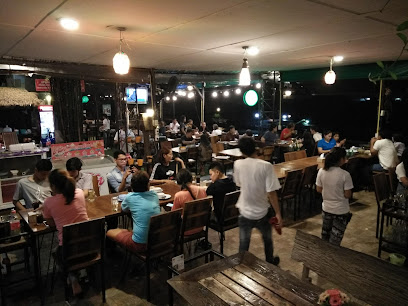
Baan Pomphet
Experience authentic Thai cuisine at Baan Pomphet in Ayutthaya – where tradition meets flavor in a charming setting.
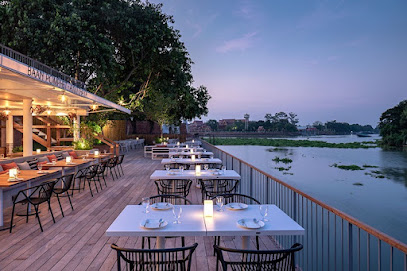
Malakor Kitchen and Cafe ร้านมะละกอ
Savor authentic Thai flavors at Malakor Kitchen and Cafe in Phra Nakhon Si Ayutthaya - where every dish tells a story.
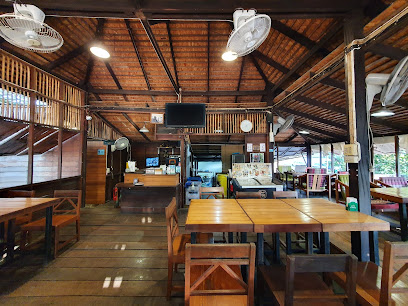
Thanam View Restaurant Ayutthaya
Experience authentic Thai cuisine with stunning views at Thanam View Restaurant in historic Ayutthaya.
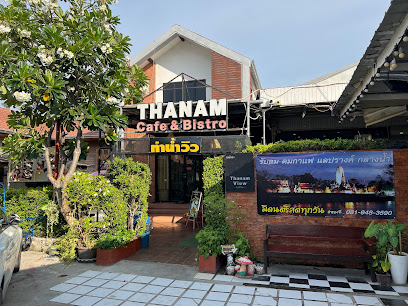
Coffee Old City
Experience authentic Thai flavors in a cozy atmosphere at Coffee Old City in historic Ayutthaya.
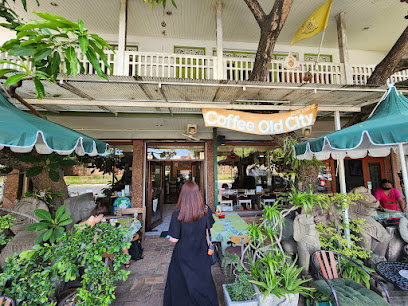
Ayutthayarom Restaurant
Experience authentic Thai flavors at Ayutthayarom Restaurant in Phra Nakhon Si Ayutthaya - where culinary tradition meets modern dining.
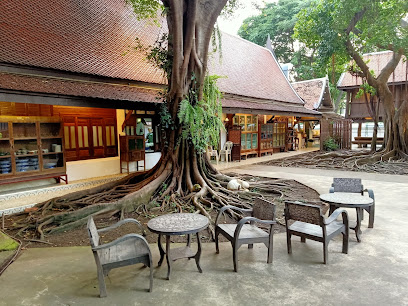
Civilize Ayutthaya
Discover authentic Thai cuisine and delightful baked goods at Civilize Ayutthaya - a must-visit culinary destination in Thailand.
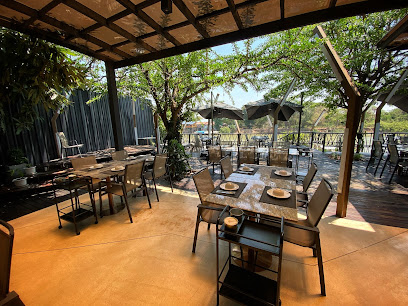
Markets, malls and hidden boutiques
Robinson Ayutthaya
Discover a unique shopping experience at Robinson Ayutthaya, where local culture meets international retail in a vibrant atmosphere.
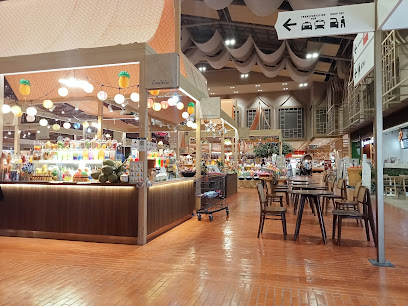
Central Ayutthaya
Explore Central Ayutthaya, where modern shopping meets rich Thai culture. Enjoy unique finds, delightful dining, and vibrant entertainment options.
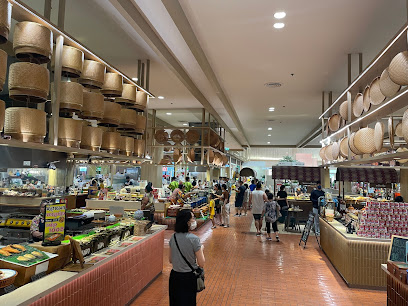
Amporn Department Store
Explore the vibrant Amporn Department Store in Ayutthaya, where local shopping and cultural experiences come together in a unique setting.
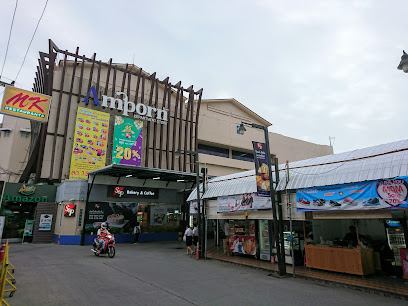
Market Ayuttaya Municipality
Explore Market Ayuttaya Municipality: A cultural hub of antiques, street food, and vibrant local life in the heart of Thailand's historical city.
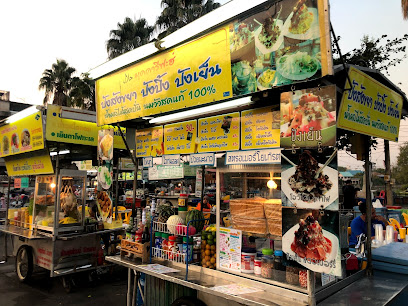
Ayutthaya City Park
Discover serenity at Ayutthaya City Park, a beautiful blend of nature and local culture in Thailand's historic capital.
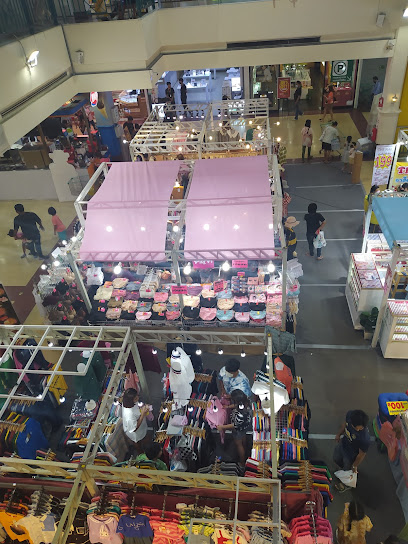
Homglin
Discover the tranquility of Homglin, a charming coffee shop in Ayutthaya offering local brews and a cozy atmosphere for all travelers.
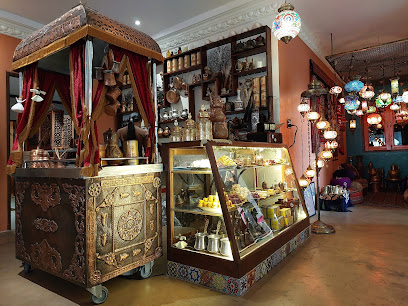
Campamento de elefantes de Ayutthaya
Experience the beauty and majesty of elephants at the Ayutthaya Elephant Camp, a top destination for animal lovers and cultural enthusiasts.
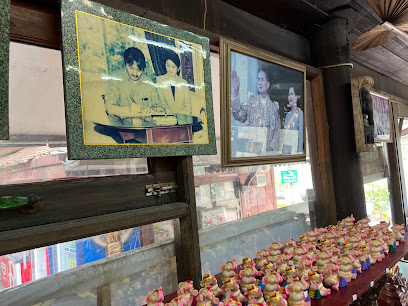
420 Exclusive Cannabis Shop Ayutthaya (ร้านกัญชา อยุธยา)
Experience the vibrant cannabis culture at 420 Exclusive Cannabis Shop in Ayutthaya, offering a diverse selection of quality products in a welcoming atmosphere.
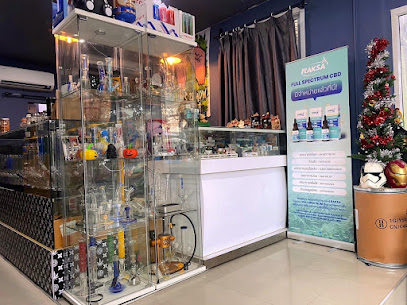
Blessed Ayutthaya Cannabis (ร้านกัญชาอยุธยา)
Experience the unique fusion of cannabis culture and coffee in the historic city of Ayutthaya, Thailand at Blessed Ayutthaya Cannabis.
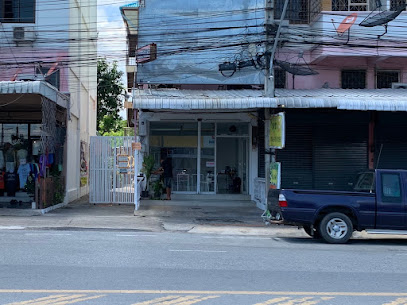
Cannabis Hemp Ayothaya
Discover the serene ambiance of Cannabis Hemp Ayothaya, where unique hemp-infused beverages meet the rich culture of Ayutthaya.
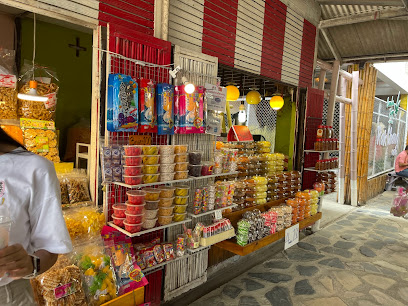
Watsons Ayutthaya Park 1
Discover Watsons Ayutthaya Park, your ultimate destination for health and beauty products in the heart of Ayutthaya.
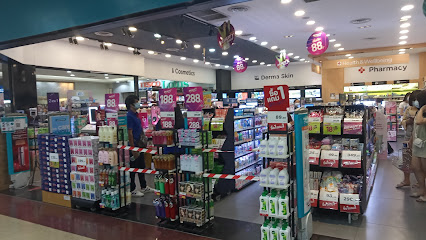
ทุกอย่าง10บาทอยุธยา
Discover unique and affordable souvenirs at ทุกอย่าง10บาทอยุธยา, where everything is priced at just 10 Baht in the heart of Ayutthaya.
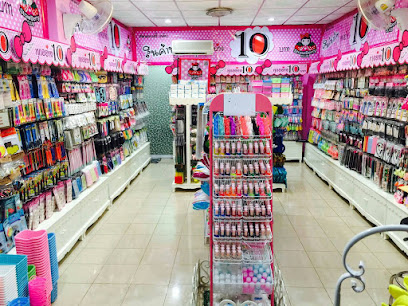
Pharaoh Land Cannabis Ayutthaya. (กัญชา อยุธยา)
Explore the unique cannabis bar experience at Pharaoh Land Cannabis Ayutthaya, where relaxation meets local culture in Thailand's historic heart.
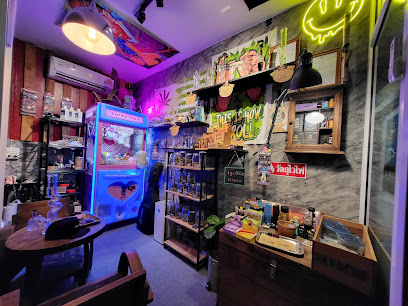
UNIQLO Central Ayutthaya Store
Explore stylish and affordable fashion at UNIQLO Central Ayutthaya, where comfort meets modern design in a vibrant shopping environment.
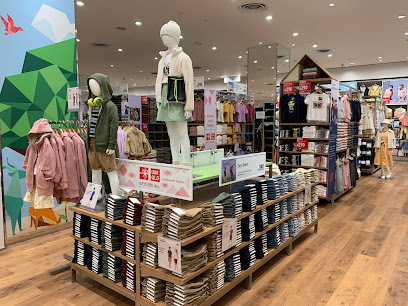
Amphon Department Store
Explore Amphon Department Store in Ayutthaya for a unique shopping experience blending Thai culture and modern retail delights.
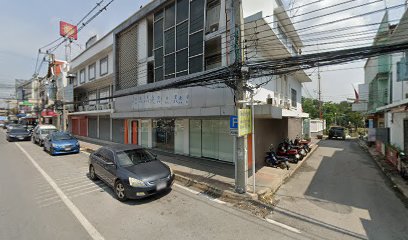
Essential bars & hidden hideouts
The terrace ayutthaya
Savor authentic Thai cuisine and international flavors at The Terrace Ayutthaya, a hidden gem in the heart of Thailand's historic city.
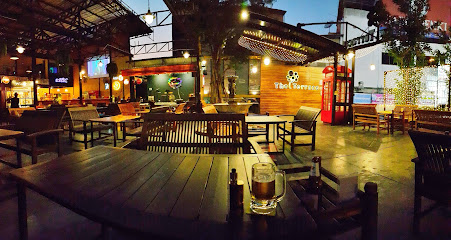
BROWN ALE AYUTTHAYA
Experience the vibrant nightlife at Brown Ale Ayutthaya, where craft beers and local flavors create the perfect evening atmosphere for tourists.
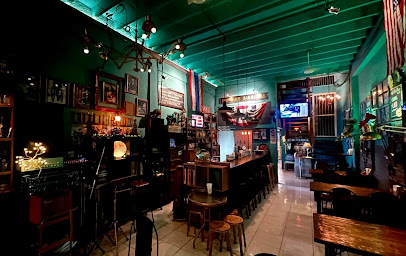
Lung nuat bar
Discover the vibrant flavors of Lung Naut Bar in Ayutthaya, where exquisite food meets lively atmosphere for an unforgettable night out.
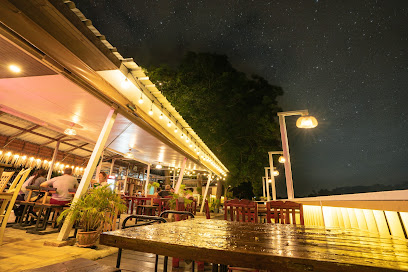
Nong Nine bike & restaurant
Experience the best of Thai cuisine and cycling adventures at Nong Nine Bike & Restaurant in historic Ayutthaya.
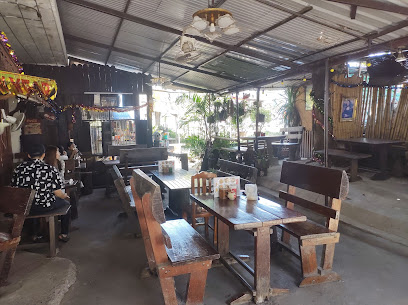
Planet Earth Bar & Restaurant
Discover the lively Planet Earth Bar & Restaurant, your perfect evening retreat in Phra Nakhon Si Ayutthaya, blending local flavors with a vibrant atmosphere.
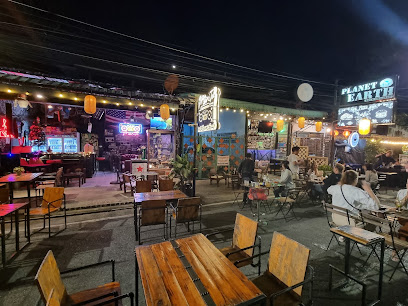
The Boss Ayutthaya
Discover the vibrant nightlife of Ayutthaya at The Boss, where delicious food and refreshing drinks await in a lively atmosphere.
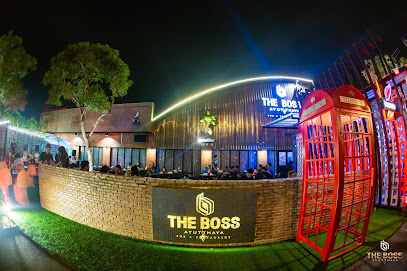
Earthling Craft - Cafe & Bar
Discover the flavors of Ayutthaya at Earthling Craft, a top-notch café and bar offering coffee, cocktails, and local delicacies in a cozy setting.
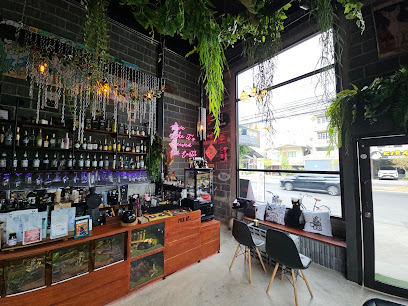
Camping Bar Ayutthaya
Experience the charm of Camping Bar Ayutthaya with delicious food and drinks set against the backdrop of Thailand's historical wonders.
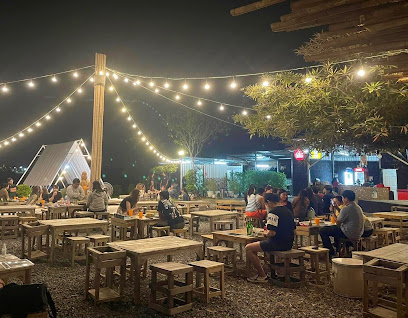
The Gravity Ayutthaya
Discover the vibrant nightlife of Ayutthaya at The Gravity Ayutthaya, where unique cocktails meet a lively atmosphere.
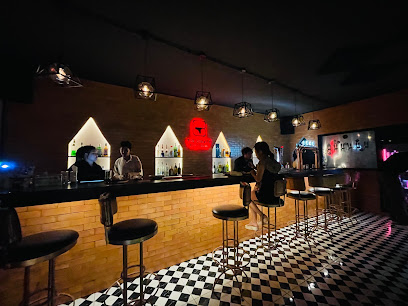
Zaapbar Ayutthaya
Discover the lively ambiance of Zaapbar Ayutthaya, where refreshing drinks and a vibrant atmosphere await you in Thailand's historic city.
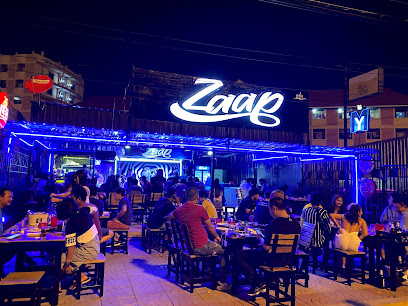
Khaosan Bar Ayutthaya
Experience the vibrant nightlife at Khaosan Bar Ayutthaya, where live music, pool, and a welcoming crowd create unforgettable moments.
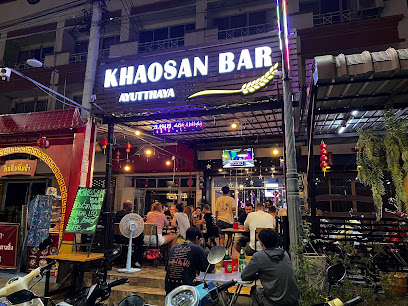
Red Cup Bar&Restaurant
Experience the vibrant flavors of Ayutthaya at Red Cup Bar & Restaurant, where local cuisine meets a lively atmosphere and refreshing drinks.
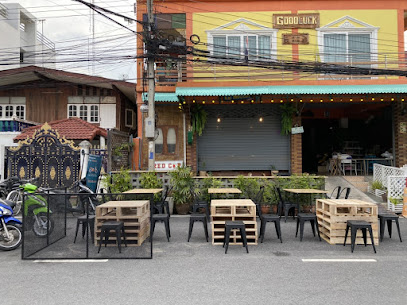
คงเจริญ Bar & Rooftop
Discover the perfect blend of vibrant nightlife and stunning views at คงเจริญ Bar & Rooftop in Ayutthaya, Thailand.
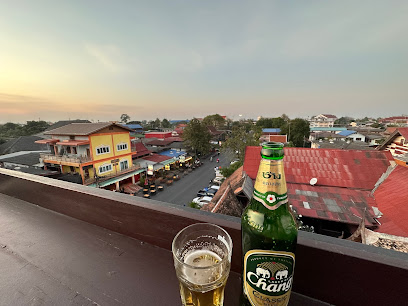
Seven street bar
Discover the lively charm of Seven Street Bar in Ayutthaya, where vibrant nightlife meets local flavors for an unforgettable experience.
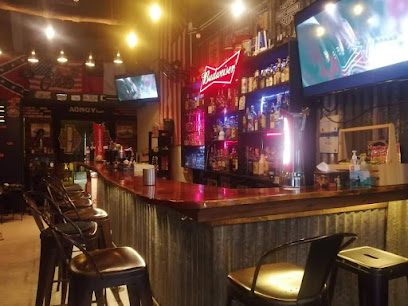
Pharaoh Land Cannabis Ayutthaya. (กัญชา อยุธยา)
Discover Pharaoh Land Cannabis in Ayutthaya for a unique blend of relaxation, culture, and cannabis in a vibrant setting.
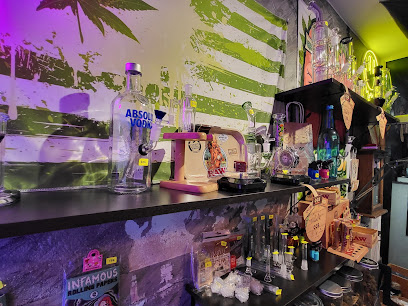
Local Phrases
-
- Helloสวัสดี
[sawasdee] - Goodbyeลาก่อน
[la kon] - Yesใช่
[chai] - Noไม่
[mai] - Please/You're welcomeโปรด/ยินดี
[prode/yindee] - Thank youขอบคุณ
[kob khun] - Excuse me/Sorryขอโทษ
[kor toht] - How are you?สุขสันต์หรือเปล่า?
[suk san reu plao?] - Fine. And you?สบายดีค่ะ คุณล่ะ?
[sabai dee ka kun la?] - Do you speak English?คุณพูดภาษาอังกฤษได้ไหม?
[kun poot paa saa angkrit dai mai?] - I don't understandฉันไม่เข้าใจ
[chan mai khao jai]
- Helloสวัสดี
-
- I'd like to see the menu, pleaseช่วยแสดงเมนูหน่อยครับ
[chuay sa-dang menu noi krap] - I don't eat meatฉันไม่กินเนื้อ
[chan mai gin neuua] - Cheers!โชคดี!
[chok dee] - I would like to pay, pleaseช่วยเสียเงินหน่อยครับ
[chuay sia ngern noi krap]
- I'd like to see the menu, pleaseช่วยแสดงเมนูหน่อยครับ
-
- Help!ช่วยด้วย!
[chuay duay] - Go away!ไปห่างๆ!
[pai yang yang] - Call the Police!โทรตำรวจ!
[toh tamruat] - Call a doctor!โทรหมอ!
[toh mor] - I'm lostฉันหลงทาง
[chan long tang] - I'm illฉันไม่สบาย
[chan mai sabai]
- Help!ช่วยด้วย!
-
- I'd like to buy...ฉันต้องการซื้อ...
[chan tong kan seu...] - I'm just lookingฉันเพื่อดูดอก
[chan peua du dok] - How much is it?ราคาเท่าไหร่คะ?
[ra-ka tao rai ka?] - That's too expensiveแพงเกินไป
[paeng geen pai] - Can you lower the price?ลดราคาได้ไหม?
[lot ra-ka dai mai?]
- I'd like to buy...ฉันต้องการซื้อ...
-
- What time is it?เวลาเท่าไหร่แล้ว
[welaa tao rai laew] - It's one o'clockเวลาหนึ่งทุ่ม
[welaa neung tum] - Half past (10)สามสิบครึ่ง
[sam sip krueng] - Morningเช้า
[chao] - Afternoonบ่าย
[bai] - Eveningเย็น
[yen] - Yesterdayเมื่อวาน
[mua wan] - Todayวันนี้
[wan ni] - Tomorrowพรุ่งนี้
[phung ni] - 1หนึง
[neung] - 2สอง
[song] - 3สาม
[sam] - 4สี่
[see] - 5ห้า
[ha] - 6หก
[hok] - 7เจ็ด
[jet] - 8แปด
[paet] - 9เก้า
[gao] - 10สิบ
[sip]
- What time is it?เวลาเท่าไหร่แล้ว
-
- Where's a/the...?...อยู่ที่ไหน?
[...yoo tee nai?] - What's the address?ที่อยู่คืออะไร?
[tee yoo keu arai?] - Can you show me (on the map)?ช่วยแสดงให้ดูหน่อยได้ไหม?
[chuay sa-dang hai du noi dai mai?] - When's the next (bus)?รถจะมาเวลาไหน?
[rote ja ma welaa nai?] - A ticket (to ....)ตั๋วไป...
[dtua bai...]
- Where's a/the...?...อยู่ที่ไหน?
History of Ayutthaya
-
Ayutthaya, officially founded in 1350 by King Uthong (also known as Ramathibodi I), quickly rose to prominence as the capital of the Siamese kingdom. The city was strategically located on an island surrounded by three rivers: the Chao Phraya, the Pa Sak, and the Lopburi, providing natural defenses and facilitating trade and transportation.
-
During the 14th to 18th centuries, Ayutthaya flourished as a hub of commerce, culture, and diplomacy. The city became one of the largest urban areas in the world, with a population estimated at over a million residents at its peak. Its prosperity attracted merchants from across Asia and Europe, making it a melting pot of cultures and influences.
-
In the 16th and 17th centuries, Ayutthaya established diplomatic and trade relations with several European powers, including Portugal, the Netherlands, France, and England. The Portuguese were the first Europeans to arrive in 1511, followed by the Dutch in 1604, who established a trading post. French envoys visited the court of King Narai in the 1680s, resulting in a series of diplomatic missions and the exchange of gifts.
-
Ayutthaya is renowned for its stunning temples and palaces, characterized by their intricate designs and grand scale. Notable sites include Wat Phra Si Sanphet, a royal temple within the Grand Palace complex, and Wat Chaiwatthanaram, an impressive riverside temple built in the Khmer style. These structures reflect the city's architectural ingenuity and cultural richness.
-
In 1569, Ayutthaya faced its first major downfall when it was captured by the Burmese during the reign of King Bayinnaung. The city was sacked, and King Mahathammarachathirat was installed as a vassal ruler. Despite this setback, Ayutthaya managed to regain its independence in 1584 under King Naresuan, who restored its former glory.
-
The final and most devastating fall of Ayutthaya occurred in 1767, when Burmese forces under King Hsinbyushin besieged and razed the city. The destruction was so thorough that the capital was abandoned, and its survivors dispersed. This event marked the end of the Ayutthaya Kingdom and led to the rise of Thonburi and later Bangkok as the new capitals of Siam.
-
Today, the ancient city of Ayutthaya is preserved as a UNESCO World Heritage Site, known as Ayutthaya Historical Park. Visitors can explore the ruins of temples, palaces, and statues that stand as a testament to the city's former grandeur. The park serves as a window into Thailand's rich history and cultural heritage.
Ayutthaya Essentials
-
Ayutthaya is located approximately 80 kilometers north of Bangkok. The most common way to get there is by train from Bangkok's Hua Lamphong Station, which takes around 1.5 to 2 hours. Alternatively, you can take a bus or minivan from Bangkok's Mo Chit Bus Terminal, which takes about the same amount of time. For a more scenic route, consider taking a boat trip along the Chao Phraya River, which offers a unique perspective of the Thai countryside and takes about 4 hours.
-
Once in Ayutthaya, there are several ways to get around. Bicycles are a popular option for tourists and can be rented from many guesthouses and shops. Tuk-tuks and motorbike taxis are readily available for short trips around the city. For a more comfortable experience, you can hire a private car or taxi. Ayutthaya is relatively compact, so many of its attractions are within walking or cycling distance.
-
The official currency in Thailand is the Thai Baht (THB). Credit cards are accepted in most hotels, larger restaurants, and shops, but it is advisable to carry cash for smaller establishments and street vendors. ATMs are widely available in Ayutthaya, and currency exchange services can be found at banks and exchange kiosks.
-
Ayutthaya is generally a safe destination for tourists. However, it is advisable to take standard precautions. Avoid carrying large amounts of cash and keep an eye on your belongings, especially in crowded areas and tourist attractions. Some areas may have higher rates of petty crime, so stay vigilant. Avoid walking alone at night in unfamiliar areas.
-
In case of an emergency, dial 191 for police assistance and 1669 for medical emergencies. Ayutthaya Hospital and several smaller clinics provide medical services. It is recommended to have travel insurance that covers medical emergencies. Pharmacies are available for minor health issues and over-the-counter medications.
-
Fashion: Do dress modestly, especially when visiting temples. Avoid wearing revealing clothing. Religion: Do show respect at religious sites. Remove your shoes before entering temples, and do not touch or climb on Buddha statues. Public Transport: Do be courteous and offer your seat to monks, elderly passengers, and pregnant women. Don't eat or drink on public transport. Greetings: Do greet people with a 'wai' (a slight bow with palms pressed together). Eating & Drinking: Do try local dishes and street food. It is polite to leave a small amount of food on your plate to show you are full. Don't point your feet at people or religious objects.
-
To experience Ayutthaya like a local, visit the local markets such as the Ayutthaya Floating Market and Chao Phrom Market for fresh produce and traditional Thai goods. Engage with locals, who are often friendly and happy to share stories about the city's rich history. Don't miss the opportunity to explore the ancient temples and ruins at dawn or dusk for a more serene experience. For a unique perspective, take a boat tour along the rivers that encircle the city.
Trending Landmark in Ayutthaya
-
Wat Yai Chai Mongkhon
-
Wat Maha That
-
Wat Phanan Choeng Worawihan
-
Wat Chaiwatthanaram
-
Ayothaya Floating Market
-
Wat Phra Si Sanphet
-
Bang Pa-In Palace
-
Wat Na Phra Meru Rachikaram
-
Wat Lokkayasutha
-
Wihan Phra Mongkhon Bophit
-
Ayutthaya Historical Park Office
-
Ayutthaya Elephant Palace & Royal Kraal
-
Chao Phrom Market
-
Wat Phutthaisawan
-
Japanese Village
Nearby Cities to Ayutthaya
-
Things To Do in Bangkok
-
Things To Do in Samut Prakan
-
Things To Do in Kanchanaburi
-
Things To Do in Pattaya
-
Things To Do in Nakhon Ratchasima
-
Things To Do in Rayong
-
Things To Do in Hua Hin
-
Things To Do in Trat
-
Things To Do in Sukhothai
-
Things To Do in Battambang
-
Things To Do in Loei
-
Things To Do in Siem Reap
-
Things To Do in Koh Kong
-
Things To Do in Udon Thani
-
Things To Do in Hpa-An
















